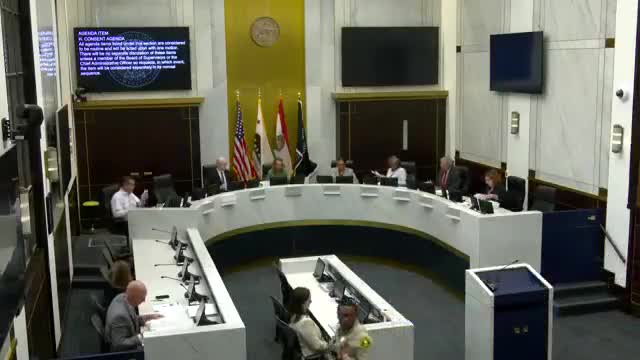Article not found
This article is no longer available. But don't worry—we've gathered other articles that discuss the same topic.
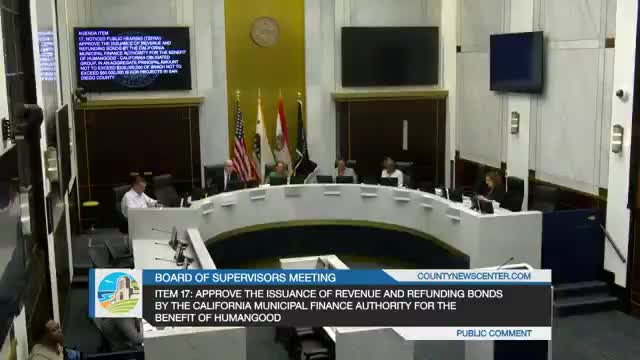
Board directs staff to shorten agenda posting timeline to improve public notice; CAO to return with rule changes
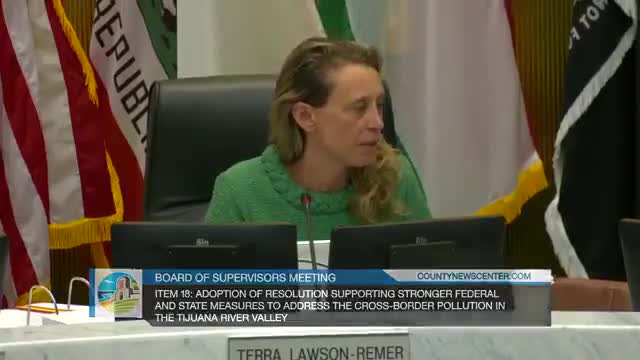
Board adopts pared‑back resolution pressing for stronger federal action on Tijuana River pollution; supervisors differ on measures
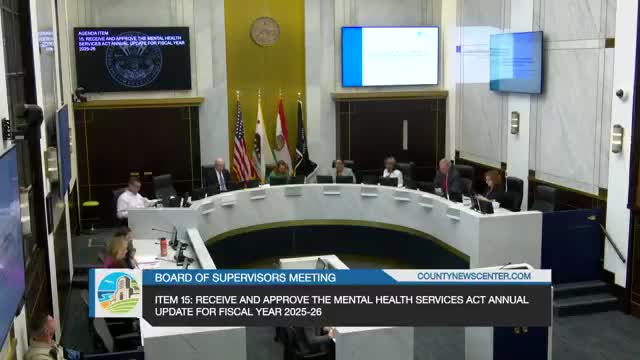
County seeks to sustain Mental Health Services Act programs as state reforms shift funding to new Behavioral Health Services Act
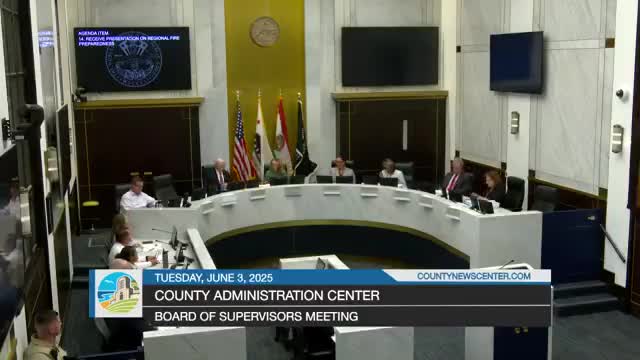
County outlines fire preparedness investments, seeks funding for night‑capable helicopter and fuel‑reduction measures
